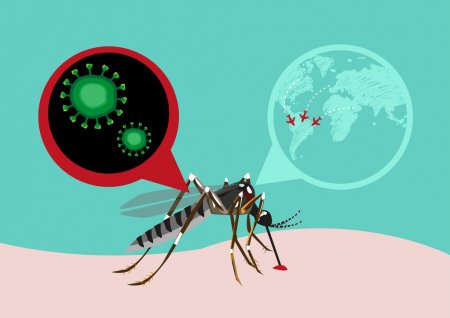This article originally appeared in NC Policy Watch. It was written by NCWU President and NARAL Pro-Choice Executive Director Tara Romano.
Summer is winding down here in North Carolina, but the heat isn’t going away just yet. And neither are the mosquitoes. In the Southeast, mosquito season can last until November, depending on the timing of the first frost. As Florida has now recorded more than 60 non-travel-related Zika cases, mosquitos are on the mind of many state officials and public health professionals. They will also likely be on the minds of women of childbearing age, who continue to confront the dire warnings about the dangers of a Zika infection during pregnancy.
It is widely believed that the Zika virus, while normally a mild disease for most people, can be dangerous to a developing fetus. These dangers include severe and potentially fatal birth defects. The risk of a range of moderate-to-severe birth defects has professionals and the general public discussing the best ways women can protect themselves from infection during pregnancy. For many, it also brings up the topics of abortion and disability rights.
Of course, the narrative that all families facing this situation will choose to have an abortion is not necessarily true, nor is it any of our business. Women choose childbirth and abortion for many reasons, and we trust women to make the choices that are best for themselves and their families. And we support them in those decisions. This support includes providing equitable access to safe abortion as well as services to children with special needs and their caretakers.
Despite the name-calling by some abortion opponents, pregnant women who consider abortion because of concerns for the fetus’ health aren’t some special brand of selfish monsters. More likely, many of them are acutely aware of the services that may or may not be available to them, and their own access to the resources that may be needed to provide adequate childcare.
You may have noticed that our society does not have much space in it for people with disabilities – employment, transportation, safe housing, medical services, and educational opportunities can be difficult to come by. And we certainly don’t offer much support to the caretakers for those with disabilities.
And for young women, poor women and women of color, who disproportionality lack access to health care and secure job opportunities, these considerations may be even more critical.
Rather than empty platitudes that may hold little meaning for those in this situation, we as a society need to offer tangible support to these families.
In North Carolina, this means expanding Medicaid so more people can have access to the health care they need. This also means ensuring access to paid sick and family leave, something few North Carolinians currently have. We need to fully fund our public education system, incorporating new technologies and innovations that integrate kids with disabilities into shared and meaningful learning opportunities. We need to raise the minimum wage, close the gender wage gap, and strengthen our social safety nets to better support our neighbors who need a little help.
In 2016 in America, almost half of the pregnancies that occur are unintended. We should address this as well if we want to help women avoid contracting the Zika virus while pregnant. Despite living in a culture that uses sexualized images to sell just about everything, many kids do not receive formal sex education beyond “just say no,” leaving them vulnerable to myths and misunderstandings about sex and about their bodies. Coupled with the phenomenon of tax dollars being funneled to organizations that regularly spread myths about birth control and sex, too many people well into adulthood don’t have the tools they need to prevent pregnancy. And birth control is not nearly as accessible as it should be. Even over-the-counter methods like condoms, contraceptive sponges and emergency contraception can be difficult to get if stores keep them stocked only behind the counter.
The Zika virus is a new global public health crisis and one whose impact is being felt most acutely by pregnant women. Whether people decide to delay pregnancy or to manage a current pregnancy, we have the tools to effectively deal with this crisis. We just need the political will to make them truly accessible to all.
